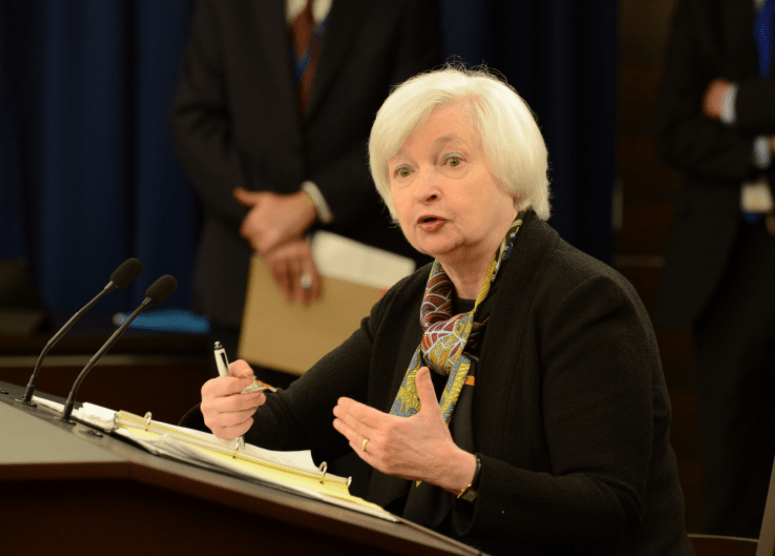“Transitory” Inflation Data & Central Bank Policy.
As expected, the US Federal Reserve raised interest rates on Wednesday 14 June by 0.25%. What caught some participants off guard was the hawkish tone taken by Yellen, especially her interpretation of recent inflation numbers.
If you take a look at an intraday chart of the DXY on Wednesday 14 June, you can see the effect that changing inflation data (and expectations) can have on a currency. Both the Core CPI and M/M CPI disappointed to the downside. As inflation is a key factor in interest rate policy, weak inflation throws doubt on Fed’s tightening, hence we saw a strong move in the USD on that news. This sharply reversed post FMOC meeting.
What’s really interesting in the differing interpretations of inflation data by both the ECB and the Fed.
ECB and Eurozone inflation.
The ECB continues it policy of QE and monetary easing, even in the face of stronger than expected data and inflation numbers. Interestingly, inflation strength thus far is viewed as transitory, and the ECB has lowered its forward guidance. This interpretation gives the ECB room to continue on their accommodative economic policy.
The FED and US inflation.
The Federal Reserve, specifically Janet Yellen, view recent inflation softness in the US as transitory, and see stronger numbers coming in the future. In her speech on Wednesday afternoon, Yellen was particularly hawkish in her tone on inflation and laid out the reasoning behind further tightening.
What we have here are two Central Banks looking over short-term data variances and focusing on longer term trends. The divergence in policy between the two is no surprise when you consider that their views on inflation over the longer term are both very different.
Where will inflation actually go?
The Fed may face problems with inflation going forwards. Oil continues to fall, which indirectly lowers costs for many businesses in the supply chain. The acquisition of Whole Foods by Amazon on Friday casts doubt over food and consumer inflation. On the plus side, unemployment is very low, and wages are seeing a slight increase.
In Europe, the ECB risks of continuing extremely loose monetary policy in an economy that is gathering steam. Should inflation appear there, the ECB has a long way to go to address an inflation problem.
FX traders should be paying close attention to, and changes in, inflation numbers and expectations over the coming months. Significant changes to interest rate policy could be on the horizon if the situation develops.
